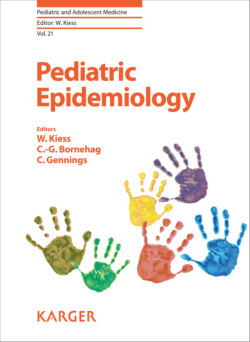Читать книгу Pediatric Epidemiology - Группа авторов - Страница 11
На сайте Литреса книга снята с продажи.
Ethical Questions of Epidemiological Research on Children
ОглавлениеTo provide effective and, not least, ethical health care for a population requires knowledge, based on evidence, of the origins and spread of diseases and of the efficacy and safety of treatment. In order to be able to usefully act preventively and interventively, group-specific data are needed. Within the framework of the theoretical and normative premises of evidence-based medicine, studies, as sources of evidence-based knowledge, contribute in the sense of medical progress to the improvement of the health of children. It would appear necessary, then, in the sense of the principles of non-maleficence and beneficence, to involve children in research as probands [1], in order to properly study not only the physical development in childhood, but also the specific psycho-social conditions associated with childhood and youth. Often it is not possible to elicit the influence of specific factors on the development of children by means of studies with children as proband groups; illnesses too that occur only in childhood or occur differently in childhood when compared to adults, can be investigated only by carrying out research on or involving children. There are numerous questions apart from those related to the clinical area, which involve children specifically and cannot be answered by a mere transfer of results from research on adults. It is thus in the interest of children and young people that studies are carried out on minor probands; at the same time, children and young people are a vulnerable group and must be protected in very special ways from abuse.
In the constitution of the World Health Organization (WHO), health is defined as “a state of complete physical, mental and social well-being and not merely the absence of disease or infirmity.” This definition takes social and cultural factors into consideration, not just as possibly negative influencing factors in illness. The latter would mean understanding health to be merely the absence of illness. According to the WHO definition, health, especially that of children, means the result(s) of a complex interplay of factors; apart from the absence of disease, the other factors are suitable protection, freedom as far as possible from anxiety, and access to health care. Epidemiology, therefore, necessarily includes researching the origins and spread of diseases in the group of minors and the social and cultural factors, from the family context to health care, that have an influence on the health of children. Children are impacted greatly by these factors in a special way, they being a particularly vulnerable group. Research on or with children thus implies that ethical challenges and questions have to be encountered by the researcher. From our point of view, what is of most serious concern are questions related to the ability of children to provide consent to be part of a research process and the need for protection. Because of numerous inadequate legal regulations on epidemiological research with children, there exists an ethical need for self-obligation.
